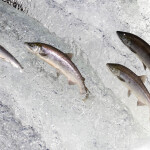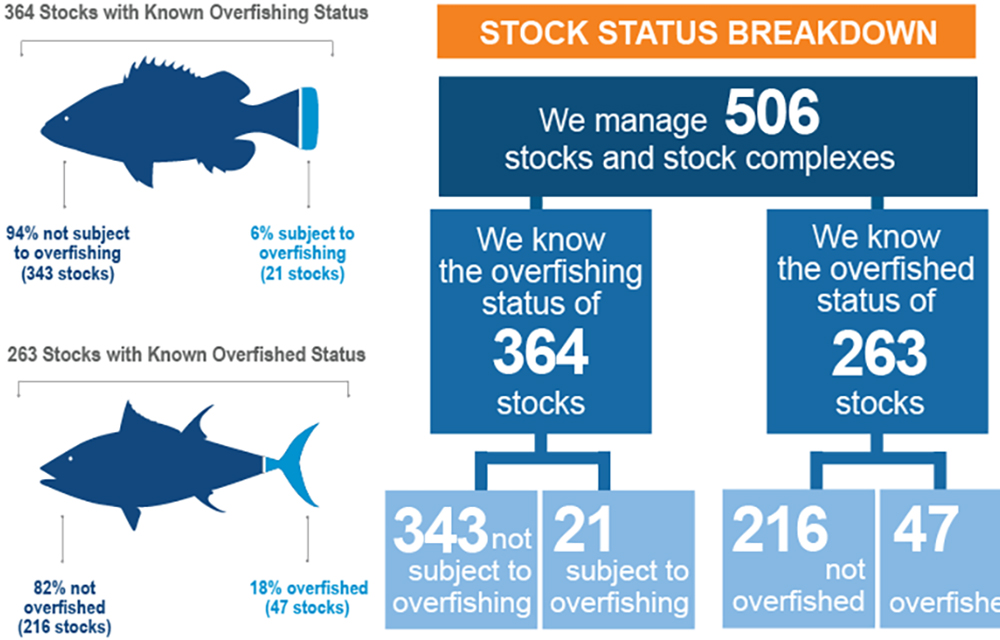NOAA Fisheries reported that a record-low number of fish stocks are currently being overfished in its latest Status of the Stocks report.
The annual report assesses the health of all 506 stocks or stock complexes the agency oversees. The 2023 Status of the Stocks report found that 94 percent of stocks are not subject to overfishing, while 82 percent are not overfished. That’s a slight improvement from the 2022 report, where the government found that 93 percent of stocks were not subject to overfishing and 81 percent were not overfished.
“By ending overfishing and rebuilding stocks, we are strengthening the value of U.S. fisheries to the economy, our communities, and marine ecosystems,” NOAA Administrator Rick Spinrad said in a statement. “Sustainably managed fisheries are important to the nation’s economy and provide opportunities for commercial, recreational, and subsistence fishing while keeping a renewable supply of seafood for consumers.”
In 2023, the number of stocks on the overfishing list dropped from 24 stocks to 21 stocks – a record low. The report also listed 47 stocks on its overfished list, which was one fewer than the prior year.
A major highlight of the report was the successful rebuilding of the 50th fish stock since the year 2000. In 2018, Snohomish coho salmon was determined to be overfished. In 2023, the government determined the stock had been successfully rebuilt through habitat restoration and responsive fishery management.
“Managing fisheries sustainably is an adaptive process that relies on sound science, innovative management approaches, effective enforcement, and meaningful partnerships with robust public participation,” NOAA Fisheries Assistant Administrator Janet Coit said. “We continually adjust management measures in response to complex challenges including climate change, rebuilding stocks, ending overfishing, and developing new forecasting tools to better predict ocean conditions.”
Though the government touted the improvement being made, stating the “report highlights successful management of U.S. fisheries,” conservation group Oceana called the minimal progress “disappointing."
Oceana criticized the agency for not improving stocks faster, noting the report still lists 47 fish stocks as overfished. The conservation group said the report shows fisheries managers lack the information needed to effectively manage nearly half of the nation’s fish stocks.
“It’s disappointing to – once again – see minimal progress to rebuild our nation’s struggling fisheries,” Oceana Fisheries Campaign Manager Gib Brogan said. “Hundreds of fish populations that are in need of conservation and management have an unknown status, and that’s not acceptable. Healthy fisheries – when fish are caught at levels that allow the populations to recover and produce consistent catches – are critical to sustaining our nation, especially coastal communities and economies. We need government agencies to step up and insist on accountability and success. Delaying needed action harms not just our oceans but also the people and communities who depend on these fisheries. NOAA is not upholding its responsibility to keeping America’s fisheries abundant and thriving, and that needs to reverse course.”
In response to the report, Oceana called on U.S. Secretary of Commerce Gina Raimondo and NOAA to immediately take action to improve fisheries management.








